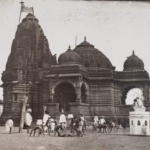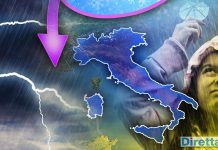Ujjayini has had a special place in the major religious and political centers of India since ancient times. For this reason, the city was mentioned by different names in different periods. Thus Ujjayini, the holy land of Mahakal, has a unique feature due to its different names. The reasons for the various names of Ujjain are mentioned in the Avanti section of Skanda Purana by legends. Come, know about these names….
Kanakshranga
Kanakshranga literally means in Hindi is ‘suvarnamayi shikharon wali’. In the 40th chapter of the Skanda Purana Avanti Khand, there is a story related to the name Kankashranga, which is as follows- Shiva and Brahma bowed to the Jagatsarishta Vishnu installed in this city with suvarnamaya peaks. He prayed to Vishnu for a place to live in this city. Vishnu placed Brahma in the north of this city and Shiva in the south to be established and thus the city became the center of Brahma, Vishnu and Shiva. Brahma called this city as the Shranga of Kanakavarna, hence its name became Kanakshranga.
The Brahma Purana and Skanda Purana give a grand description of the buildings here. He was adorned with precious gems, mukta mini and torana gates and had golden vases on his tops.
Kushasthali
According to the 42nd chapter of Skanda Purana Avanti Khanda, the story related to this name is as follows- Brahma created the entire creation, then the task of protecting the world came to Vishnu, because Lord Vishnu is the follower of the world. Brahma covered this holy place with Kushas and prayed to Vishnu to be revered there. Thus its name became Kushasthali due to being covered with Kushas. ‘Kush’ is called the sacred grass which is used for the postures of gods and sages.
Avantika
‘Ava-Rakhena’ is used in the sense of protecting, so ‘Avantika’ means ‘able to protect’. The story of the name ‘Avantika’ in the 43rd chapter of Avanti Khand of Skanda Purana is as follows- Once there was a war between gods and demons. The gods were defeated in this battle, after which the Devas took shelter near Vishnu on Mount Meru. Vishnu asked him to go to the city of Kushasthali after attaining strength and renewable virtue. This city located in Mahakal forest is going to fulfill all the wishes. Here in every kalpa, deity, pilgrimage, medicine, seeds and whole beings are followed. This city protects everyone, so its name is Avantika city. According to the mythological history, the Avantis, the branch of the Haihayas, established this state and for this reason it was named ‘Avanti’ in their memory.
Padmavati
The story named Padmavati is as follows- 14 gems received after the churning of the sea were distributed in this holy place. It was here that the gods received gems. After receiving the gems, the gods said that in Ujjaini, we have all suffered from the jewels, so Padma, that is, Lakshmi will always reside here, and since then it has been named ‘Padmavati’.
The grand prosperity of Padmavati is described in the poems, plays and Pali and Prakrit texts of Brahma Purana, Skanda Purana and Kalidas, Banabhatta, Shudraka etc.
Kumudvati
At the core of the Kumudwati nomenclature is its attractive natural beauty. The story named Kumudvati is in Skanda Purana- When Lomash Rishi reached the city of Padmavati while doing pilgrimage, he saw the waterfalls of the lake, Tadag, Pallaval, river etc., full of waterfalls and lotuses. Seeing the places beautified by the Kumuds, it seemed as if the earth was beautified by many lunar. This Kumudini forest was always cheerful with the beauty and light of Chandra situated on Shiva’s head. Therefore, Lomash Rishi named it Kumudavati.
Amravati
In the Mahakal forest, Marichinandan Kashyap, along with his wife, underwent a severe austerity and found the boon that ’till the position of Sun and Moon, their offspring will remain on earth’ All the subjects of God, Asura and human form attained their growth. This Mahakal forest became full of opulence. There are rare ratnadis obtained from churning of the sea on this earth. Whatever are the divine and supernatural things in this world, they are all attainable in this Mahakal forest. All the gods are revered in this forest. This city became famous as Amaravati due to the abode of entire deities.
Vishala
Mahadev built this huge puri according to Parvati’s wish and said that this city will fulfill all the wishes. There will be residence of saints, deities and maharishis in it. Here, there will be a large area with all kinds of animals and birds and gardens with flowers and fruits and a golden archway with golden, gem and piers. In this way, this city became full of all kinds of prosperity and splendor and became famous by the name Vishala. It is clear from the ‘Vishala Bahuvistirna Punya Punyajanashraya’ that it was wider than other towns. Kalidasa sweetly imagined its vastness in Meghdoot through the repetitive use of ‘Srivishalaan Vishalam’.
Pratikalpa
According to the Puranas, the universe begins with every cycle. ‘Kalpa’ means that one day of the divine Sahasra era of Brahma is called Kalpa. In this way, the cycle of holocaust and creation goes on the earth. Brahma, Vishnu and Shiva reside in this Mahakal forest. The creation of the world begins in every cycle. The different kalpas of Vamana, Varaha, Vishnu and Pitras etc. all started from here. This city has always been immovable even after the creation and destruction of the whole world. So Brahma said it would be famous under the name Pratikalpa and it became famous under the name Pratikalpa.
Ujjayini
‘Ujjayini’ literally means ‘excellent victory’. Once the demon king Tripura pleased Brahma with his incurable asceticism. Brahma gave him the boon of ignorance from Devas, Demons, Gandharvas, Vampires, Demons etc. Satisfied with the groom, Tripura started killing Brahmins, sages and deities. This made all the Devas afraid of him and they all went to Shiva. He prayed to Shiva for protection, then Shiva fought fiercely in the Avanti region from Tripurasura. He killed Tripurasura in three parts of his Pashupat weapon in the Avanti city and killed him fiercely. Therefore the gods and sages named it Ujjayini.
The Pali and Prakrit texts also mention this name with plurality. All the poets of Sanskrit literature have often used the name ‘Ujjayini’ in their texts. The same name is more prevalent in the modern era.
When the use of the word ‘Ujjayini’ started, it cannot be said with certainty. Panini (500 BCE) in his Ashtadhyayi has mentioned ‘Ujjayini’ in the Varanadi gana text. Kalidas and Shudak have also used the name ‘Ujjayini’ prominently. Hence it can be said with certainty that this name started being used from 6th century BC. By the time this name came into vogue, Ujjain became.
Bhogavati and Hiranyavati
The inclusion of these two names is as follows- Hiranyavati with the excess of Bhogavati and Suvarna, having all kinds of Bhog. Both these names are included in the names Amaravati, Vishala and Kankashranga.
All the names mentioned above give different characteristics of Ujjayini. If you look at the whole, then through these names a grand picture of Ujjayini becomes present. It is a real and safe city with vast area, full of opulence and splendor. It is a beautiful place of nature.
Troopel.com is taking the initiative of making the sanctity of Ujjain city an ideal holy city beyond the paper address, in which the wish of the channel is to be completely forbidden in the Mahakal city. If you also want to revive the sanctity of this city, click on https://bit.ly/troopelujjain and join Troopel.com.
For more details:
Call Us: 9755020247
Mail Us: revolution@troopel.com






